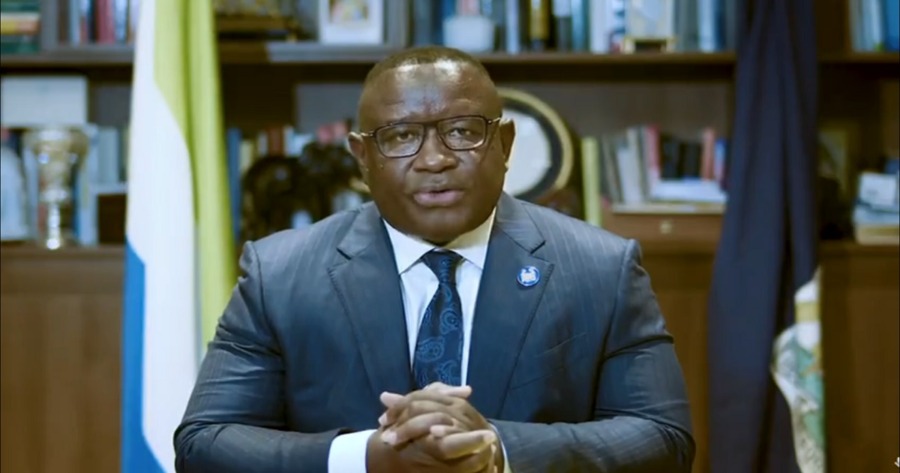Julius Maada Bio, the incumbent President of Sierra Leone, has been re-elected for a second term with 56.17% of the vote, according to the head of the electoral commission. However, the country continues to grapple with the lasting effects of its civil war, and Bio faces significant challenges in guiding Sierra Leone toward stability and prosperity.
In the first two months of his first term as President, Bio introduced free education for primary and secondary school students in public schools throughout Sierra Leone while eliminating application fees for government-run public universities. He cancelled a $400 million loan agreement with China for a new international airport. Within the first two months, Bio reviewed government mining contracts and dismissed all ambassadors and permanent representatives from the previous administration. He appointed his cabinet ministers, including an opposition leader, Charles Margai, who briefly served as Attorney General and Minister of Justice.
Sierra Leone’s civil war, which lasted from 1991 to 2002, left deep scars on the nation. Despite progress made in the post-war years, the country is still grappling with the effects of the conflict. Challenges such as high poverty rates, inadequate infrastructure, limited access to education and healthcare, and pervasive corruption persist. President Bio must prioritize addressing these longstanding issues, focusing on social and economic development, improving governance, and promoting national reconciliation.
Violent clashes and heightened tensions marred the recent presidential elections in Sierra Leone. Reports of voter fraud and intimidation further exacerbated the situation, leading to widespread unrest. President Bio must address these concerns swiftly and impartially. An independent investigation into alleged electoral irregularities can help restore trust in the democratic process and provide a solid foundation for future elections. Additionally, promoting dialogue, fostering inclusivity, and ensuring the rule of law will be vital to healing the deep divisions within the country.
President Bio must prioritize stability and economic growth to overcome the prevailing sense of bleak optimism by some. This involves implementing robust policies that promote job creation, attract foreign investment, and diversify the economy. Sierra Leone’s abundant natural resources, including minerals and agricultural potential, can catalyze sustainable development. However, harnessing these resources requires effective governance, transparent practices, and prioritizing long-term socioeconomic stability over short-term gains.
Investing in human development is key to unlocking Sierra Leone’s potential. Enhancing access to quality education, healthcare, and social services will empower the population and foster a skilled workforce. President Bio should focus on expanding educational opportunities, particularly for marginalized communities, and investing in healthcare infrastructure to improve access to vital services. Promoting gender equality, combating corruption, and ensuring the protection of human rights are also critical components of fostering a thriving society.









